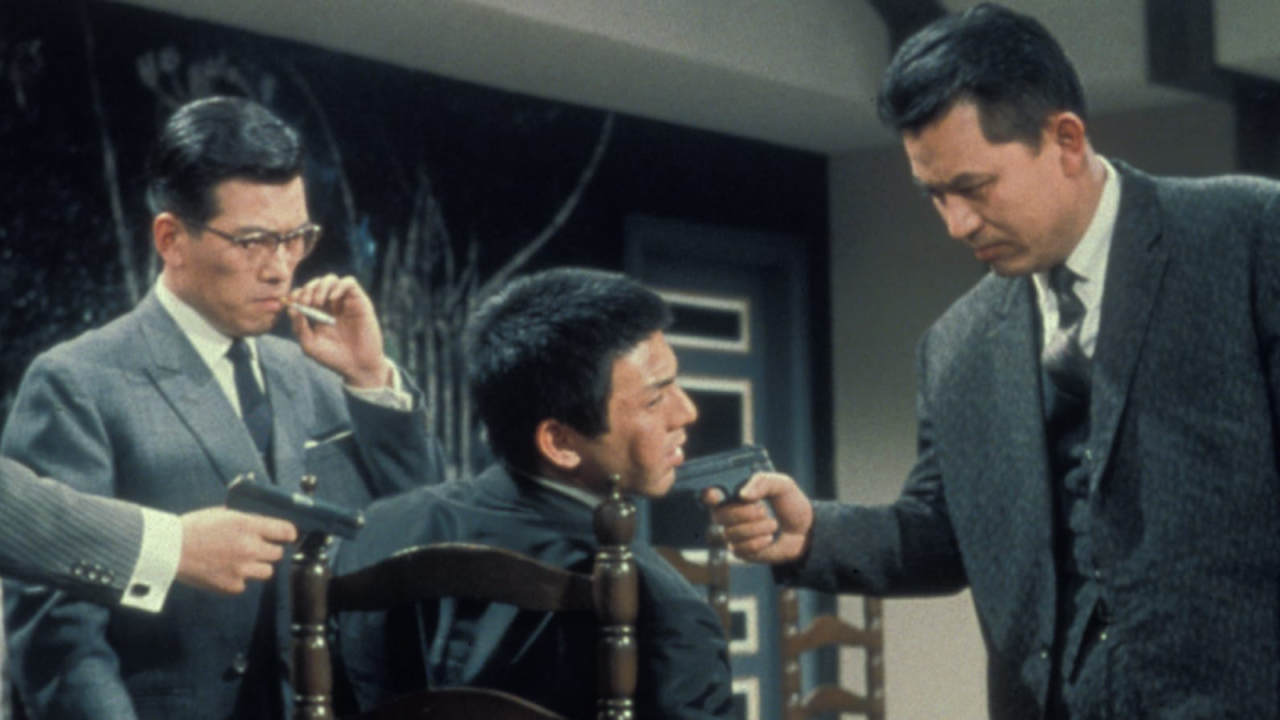Youth of the Beast

When a mysterious stranger muscles into two rival yakuza gangs, Tokyo's underworld explodes with violence. Youth of the Beast (Yaju no Seishun) was a breakthrough for director Seijun Suzuki, introducing the flamboyant colors, hallucinatory images, and striking compositions that would become his trademark. The Criterion Collection proudly presents the film that revitalized the yakuza genre and helped define the inimitable style of a legendary cinematic renegade.
SPECIAL EDITION FEATURES
- Restored high-definition digital transfer
- Interviews with director Seijun Suzuki and actor Joe Shishido, made by Nikkatsu in 2001
- Original theatrical trailer
- PLUS: An essay by film critic Howard Hampton
Cover by Lucien S. Y. Yang
SPECIAL EDITION FEATURES
- Restored high-definition digital transfer
- Interviews with director Seijun Suzuki and actor Joe Shishido, made by Nikkatsu in 2001
- Original theatrical trailer
- PLUS: An essay by film critic Howard Hampton
Cover by Lucien S. Y. Yang

Cast
- Joe Shishido
- Joji Mizuno
- Misako Watanabe
- Kumiko
- Tamio Kawaji
- Hideo Nomoto
- Ichiro Kijima
- Koichi Takeshita
- Mizuho Suzuki
- Hirokawa
- Shoji Kobayashi
- Tatsuo Nomoto
- Kinzo Shin
- Shinsuke Onodera
- Eiji Go
- Shigeru Takechi
Credits
- Director
- Seijun Suzuki
- Cinematography
- Kazue Nagatsuka
- Production design
- Yoshinaga Yokoo
- Screenplay
- Ichiro Ikeda
- Screenplay
- Tadaaki Yamazaki
- Based on a novel by
- Haruhiko Oyabu
- Music
- Hajime Okumura
- Producer
- Keinosuke Kubo











